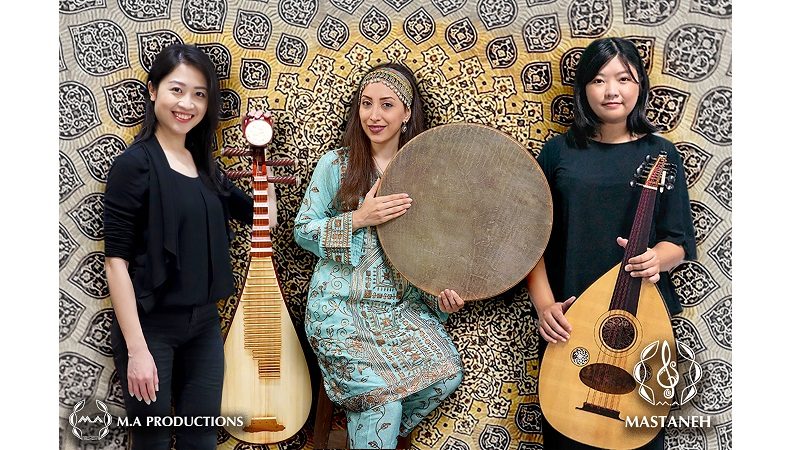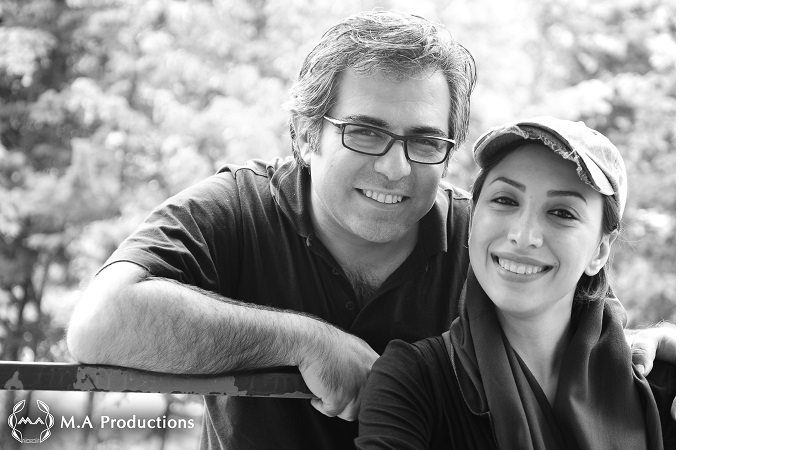A Performance Merging Two Civilizations 3/5
Interview: Mona Kaveh Ahangari and Ali Montazami (co-founders of M.A PRODUCTIONS) speak with Music Press Asia’s editor-in-chief Monica Tong to uncover the cultural influences of these traditional instruments and why it is important to keep them alive.
Interview: Mona Kaveh Ahangari and Ali Montazami (co-founders of M.A PRODUCTIONS) speak with Music Press Asia’s editor-in-chief Monica Tong to uncover the cultural influences of these traditional instruments and why it is important to keep them alive.

Return to the previous page
3. Drum and string instruments have always played a huge part in traditional music worldwide, and most recently over the decade on the Silk Road. What sort of role is it playing in Taiwan today?
MK Ahangari: Well, string instruments are the most important part of Chinese music and on the other hand, people of Taiwan are very familiar with various kinds of drums from all around the world except Iranian drums. The only Iranian percussion that I see is known here by some is Tonbak which came to Taiwan by personal efforts of its performer here, Ya-Hsin Cheng, who learned Tonbak in France. Daf is an Iranian percussion instrument that was rarely introduced in Taiwan before we start our activity here. Although Iranian history, culture, and music are rarely introduced here, the people of Taiwan are very open-minded and very interested in learning about other cultures.
Talking about Daf in Taiwan, I think some features of Daf are most interesting to people here, for example, the diversity of different emotions that this instrument could create, and the possibility of performing Daf accompanying the other instruments from Chinese to European Classical musical instruments like Baroque is attractive to them. Also the group playing of Daf, and the loudness of its sound which surprises everyone are so exciting to people here. I found that the audience is attracted to rapid rhythms and the rhythms which move the body.
This welcoming attitude of people and their interest in listening to my performances made me excited to continue my musical activities in Taiwan. So I applied for a special work permit in Taiwan for artists, then based on my previous experiences and international musical activities, I was honored to be granted three years work permit from the Ministry of Labor and Ministry of Culture in 2018. Recently, after many performances here, teaching more than 25 Daf learners of adult and child, and starting our two music bands, I managed to receive another three years of work permit in Taiwan too.

4. “Darvish” is the first song recorded with the MASTANEH music band. Tell us why you’ve chosen to re-arrange and record this piece of music?
MKA: First, it goes back to my connection to this song and my frequent Daf playing with this song for joy, years ago. I had the vision of putting this song as the first song of my band. On the other hand, joining Pipa to MASTANEH was another reason to choose “Darvish”.
Before starting the MASTANEH music band, I had a collaborative performance with a professional Pipa musician, Yu-Feng Chung, in music theater concert of “We Meet Here 我們在此相遇” in Taipei Hakka Cultural Theme Park. She was very professional in Pipa and also familiar with Iranian music, so by reviewing some Persian traditional songs we found “Darvish” more compatible with Pipa to play together in that concert. The core instruments of the original song by the composer “Jahanbakhsh Rostami” were Daf and Tanbour. Since the technic of playing Pipa is similar to Tanbour’s, we found that this Chinese instrument could perfectly cover the feeling of the sound and can take the role of Tanbour in this song. After that performance, I decided to have Pipa in my band.
Therefore, considering the coverage of Tanbour’s technic by Pipa and the fact that “Darvish” was a bit easier compared to other Iranian traditional songs to play by Pipa, I have selected this song as MASTANEH’s first song.
However, as the original song doesn’t have Barbat, we had to rearrange this song for both purposes of replacing Tanbour with Pipa and also adding Barbat to the song. This very special arrangement was done by Alban Couëffé, the first Barbat player of MASTANEH who is also a highly professional Barbat master, teacher, and producer in Taiwan.
Click here to read page (4)



